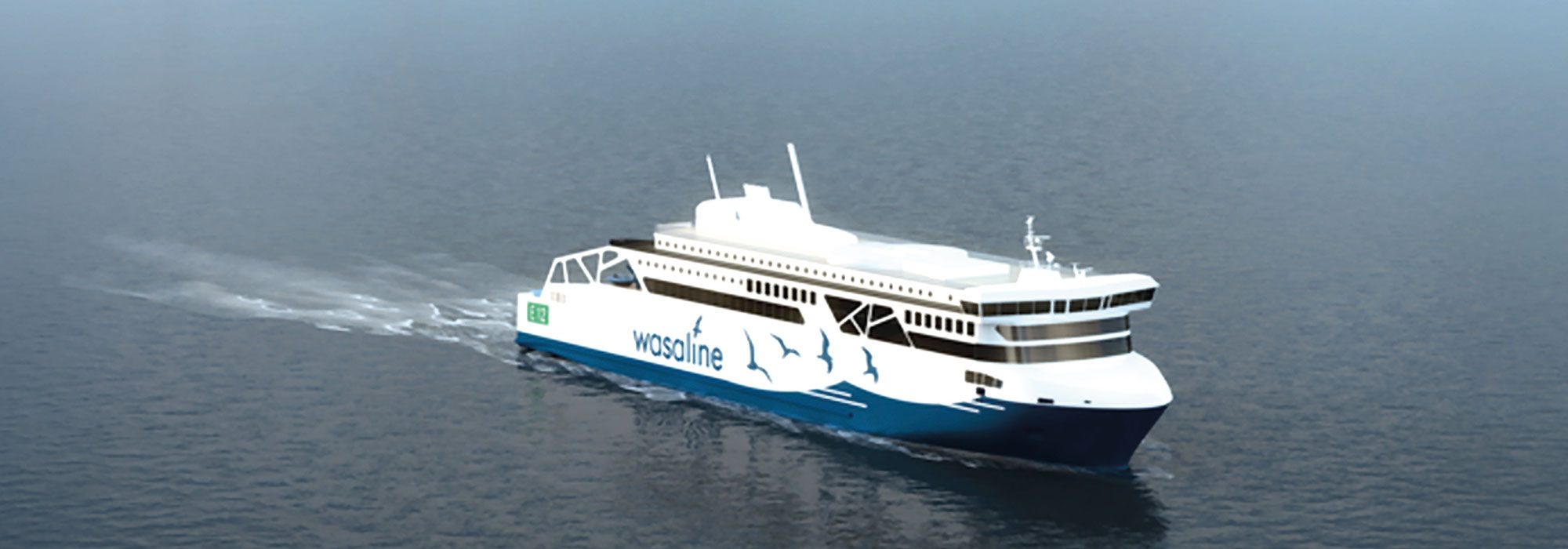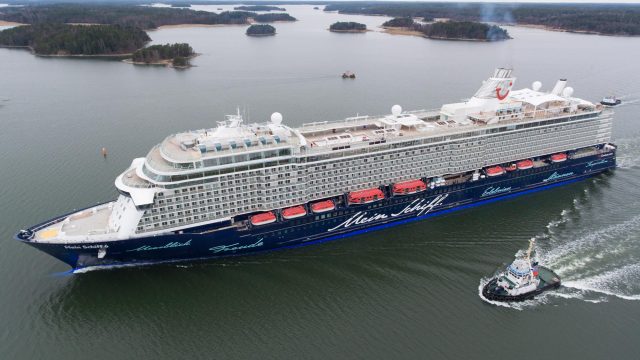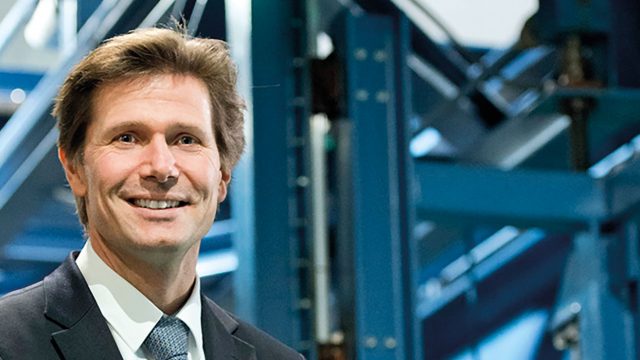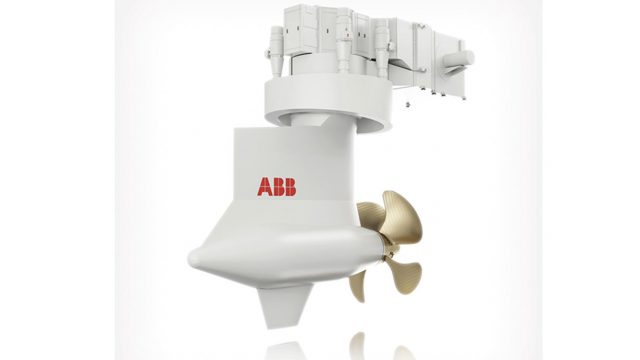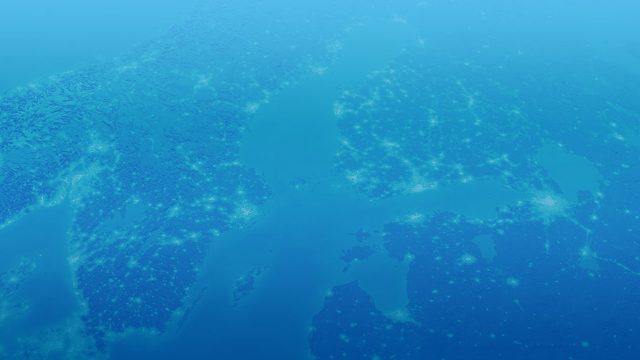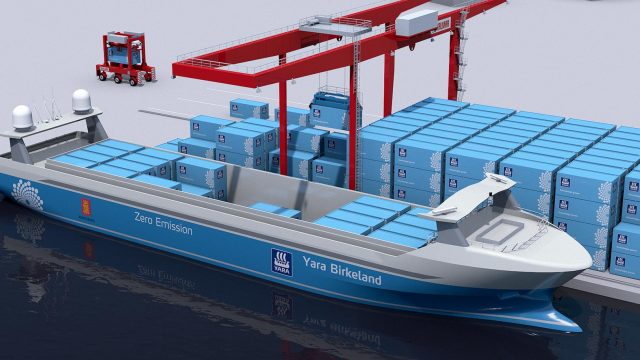The basis for Wärtsilä’s activities is the Smart Marine vision, which is based on digitalisation and seeks to enhance the safety of shipping, mitigate environmental impacts and boost efficiency.
According to Juha Kytölä, Wärtsilä’s Director in Marine Business, one major milestone for the company was its acquisition of Transas, a British company. The transaction was completed for EUR 210 million in spring 2018 and placed Wärtsilä among the major players in smart shipping.
“We already had a large amount of expertise in this sector, but the Transas acquisition brought hundreds of specialists working solely on marine software to our company. Transas bundles together navigation, training and simulation solutions, as well as traffic management systems for smart technologies. Now, instead of designing smart ships, we have the capability to design smart fleets,” says Kytölä.
Other development steps have included tests of automatic port arrival solutions and a project to develop an autonomous port tugboat.
“We now have the capability in Wärtsilä to design autonomous vessels with the help of our advanced automation and positioning solutions. The main focus is however not to replace skilled personnel but to use vessel automation in ordel to increase safety at sea,” says Kytölä.
The company’s customers are ship owners, shipyards and ship management companies. The customer base includes traditional merchant ships, gas tankers, cruise ships and passenger ferries, warships and specialized vessels. In the energy industry, Wärtsilä serves offshore installations and the associated maintenance vessels, as well as the onshore gas industry facilities.
The stricter emission requirements imposed by the IMO have been widely known for a long time. According to Juha Kytölä, Wärtsilä Marine’s product development work has long focused on designing new, cleaner energy solutions.
“The number of LNG-fuelled vessels has already increased, and we will see many more such vessels in the near future. Nowadays, whenever new-builds are considered, LNG is always an option.”
However, there are alternatives. Kytölä notes that Wärtsilä is the global market leader in exhaust gas scrubbers. Ships equipped with scrubbers will be able to use fuels with a higher sulfur content even after 2020.
“Environmental requirements are becoming systematically stricter. The limits for sulfur in fuel were announced well ahead of time. Ultimately, it boils down to the decisions made by ship owners on whether they want to use cleaning technologies or pay more for fuel. In the marine industry, these decisions are often left until the last minute,” Kytölä says.
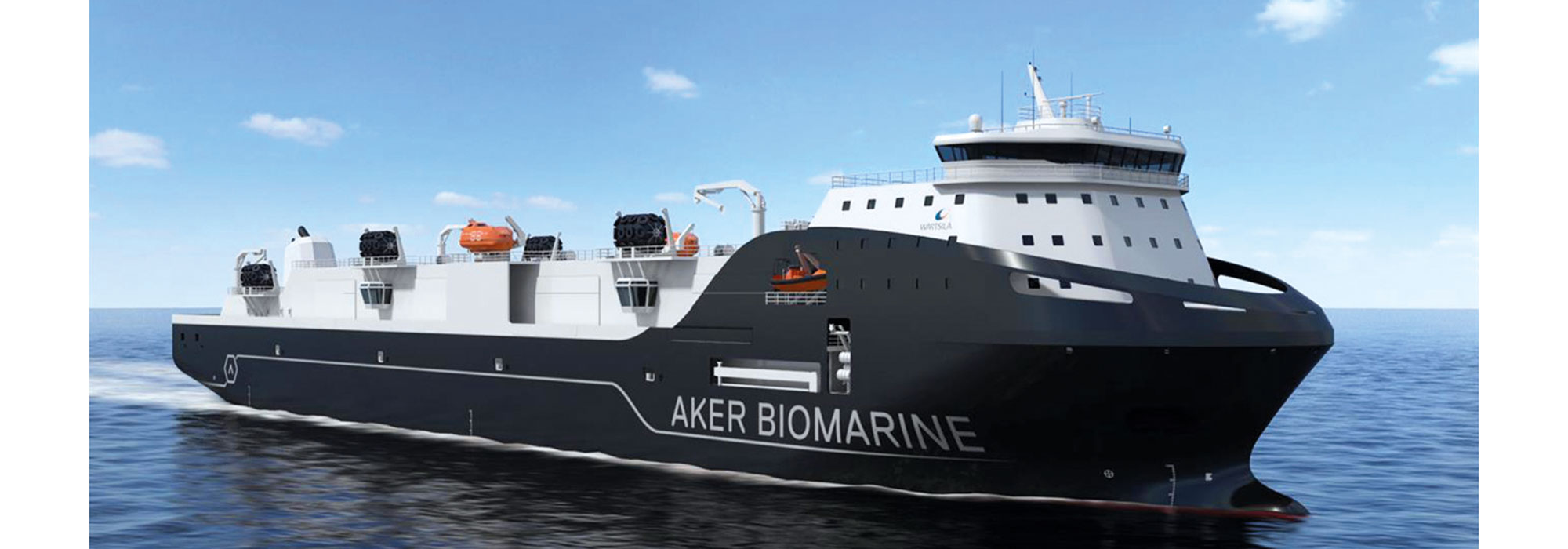
Ultra-modern ship projects
The marine sector is a flurry of activity. Wärtsilä is involved in numerous projects to design and develop ultra-modern vessels. One of the most interesting of these is Wasaline’s new RoPax vessel, which will be one of the most efficient and ecologically sustainable ships in the world.
One of the ship’s most important features is its hybrid-propulsion solution. This includes four very powerful Wärtsilä 31DF multi-fuel engines, which can run on liquefied natural gas (LNG) as well as biogas. The diesel version of the Wärtsilä 31 engine is the world’s most efficient four-stroke diesel engine according to Guinness World Records.
Wärtsilä is also providing LNG storage, supply and control systems for new-builds, as well as thrusters, catalyzers, control systems and integrated electrical and automation systems, which include an energy and power management system for optimizing the use of the hybrid solution.
The combination of Wärtsilä 31DF engines, hybrid propulsion and LNG and BioLNG fuels makes the ship a prime example of efficiency and sustainability as it enters service on the route between Finland and Sweden. Carbon dioxide emissions will decrease by more than 50 per cent compared with the ship that currently operates the route.
“This ship represents a complete Wärtsilä life cycle solution with the minimum possible environmental impact. This is an important recognition of Wärtsilä’s Smart Marine approach in which digitalization is used to create efficiency, lower costs and environmentally friendly performance,” says Henrik Wilhelms, Wärtsilä Marine’s Director of sales.
Another interesting project with an important environmental perspective is the design of a modern depot ship for krill-fishing vessels operating in the Antarctic waters, commissioned by Aker BioMarine, a Norwegian company.
The new ship will be 168 meters long with a deadweight tonnage of 20,300, and it will meet the IMO’s Polar Code requirements. Wärtsilä’s hybrid solutions ensure sustainable development, and the reason they were selected was that they are the best way to ensure the protection of the sensitive natural environment in the Antarctic.
Eldar Vindvik, a Director at Aker BioMarine, says that Wärtsilä’s hybrid solutions for propulsion and transmission devices and advanced heat recovery systems significantly reduce the ship’s carbon footprint.
The main engines on the newly built ship are of the Wärtsilä 31 type, and the auxiliary engines are two Wärtsilä 20 engines. All of the engines are equipped with Wärtsilä’s NOR catalyst systems, which reduce nitrogen emissions when the engines are running on diesel. As part of the hybrid solutions, Wärtsilä is also supplying transmission solutions along with the associated batteries, gears and propeller equipment.
The new ship will carry equipment and liquids to Aker BioMarine’s krill-fishing vessels operating in the Antarctic, and it will be completed by the beginning of the 2021 krill-fishing season.

Smart Technology Hub in Vaasa
Onshore, Wärtsilä is building a new R&D and production center in Vaskiluoto, Vaasa. The site will be known as the Smart Technology Hub and it will be taken into use by the end of 2020. According to Juha Kytölä, the hub will provide a dedicated site for the entire R&D department, right by the port.
One part of this hub is the Smart Partner Campus, a center of expertise in smart shipping and energy generation. Partnership with the smart campus has aroused interest in Finland and elsewhere, and more than 200 entities have registered via the open innovation platform.
In March 2019, Wärtsilä selected its first partners from among this number. In the first phase, Wärtsilä will design the smart campus in collaboration with Danfoss, Demos Helsinki Oy, NLC Ferry Ab Oy, Royal Caribbean Cruises Ltd, Vaasan Sähkö Oy and the University of Vaasa.
“The aim is to create a playbook, which is a flexible concept enabling as many entities as possible to be involved for different periods of time. We believe that this model will bring together experts from various fields to enhance innovation and discover new things,” says Hannu Mäntymaa, Wärtsilä’s Director of Engineering.
The smart campus has striven to attract local operators as well as global partners, since building a strong ecosystem is an important part of the whole ideology of the Vaskiluoto technohub.
“The University of Vaasa has been involved in developing a functional concept from the outset. Demos Helsinki has a wealth of experience in building different types of associations and working within them. RCC and Danfoss are global companies that will complement Vaasan Sähkö and bring an extra spark to the development of smart seafaring and energy generation.
“The new ship on the Kvarken Link operated by NLC Ferry and the proximity of the port will provide unique opportunities for building an environmentally friendly ecosystem,” says Vesa Riihimäki, Wärtsilä Finland’s Managing Director.
In 2018, Wärtsilä Corporation’s net sales amounted to EUR 5.2 billion and it had approximately 19,000 employees. The company has over 200 offices in more than 80 countries around the world. Wärtsilä’s shares are listed on the Nasdaq Helsinki exchange.

